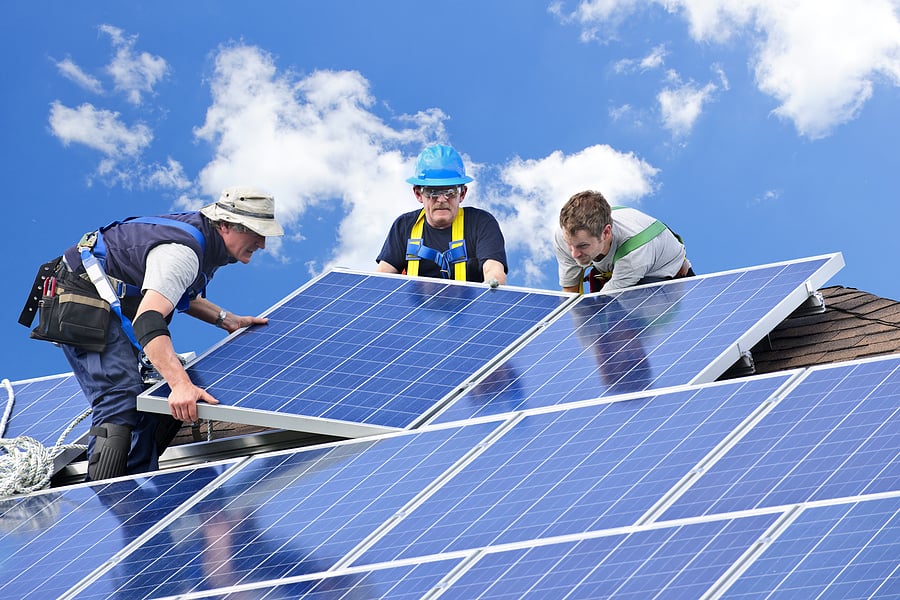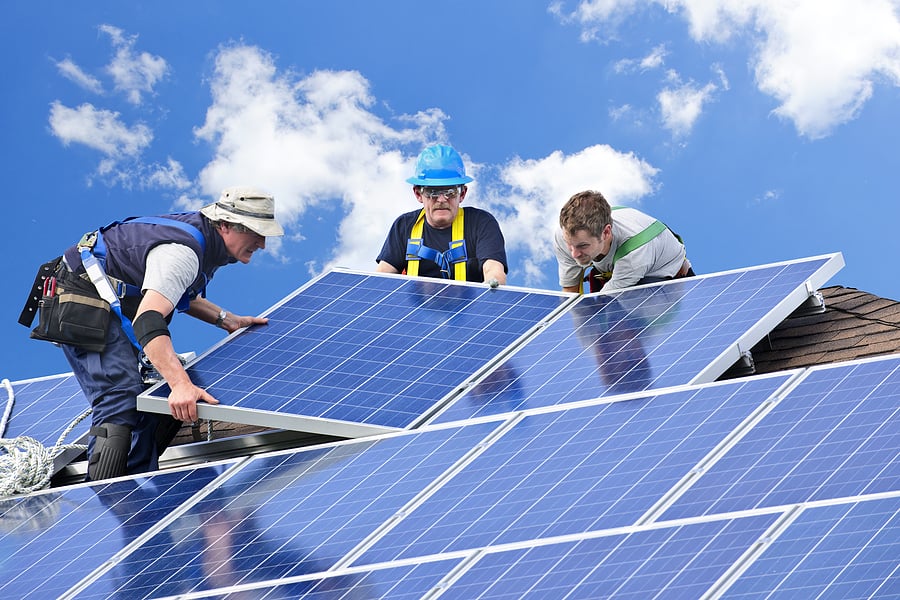How Do Solar Panels Produce Energy?

Solar energy has several benefits, one being long-term cost savings. It also creates jobs, reduces greenhouse gas emissions, and diversifies energy sources. So how do solar panels produce energy? At Cooper Roofing & Solar, we understand the effectiveness of this renewable energy source. Contact us today for comprehensive solar solutions in Las Vegas.

Essential Solar Energy Components
Most solar panels contain silicon. Although this element is abundant, creating high-quality silicon crystals is a hectic and expensive process. Some solar systems utilize similar but more affordable substances, such as copper, selenide, gallium, and indium. Other elements are added during manufacturing to alter the silicon atoms’ electrical properties.
They sandwich negative and positive silicon strips together to form photovoltaic cells under a glass shield. Every panel contains a wired metal plate connected to a fused array combiner. Electric power from this array flows through an inverter, which transforms it from DC to AC.
How Do Solar Panels Produce Energy?
Solar panels generate electricity in five broad steps. The process starts when photovoltaic cells on your roof absorb sunlight during the day. There's a thin semiconductor component inside each cell consisting of two silicon layers. They form an electric field because one is positive while the other is negative.
How do solar panels produce energy? The sun's rays contain invisible energy particles known as photons. When the electrons inside photovoltaic cells come into contact with photons, they break free from the atoms in the semiconductor component. The loose n-type electrons seek their p-type counterparts, which enables the flow of electric current.
This flowing electricity is known as direct current (DC). The third step converts it into alternating current (AC), which powers most homes, by channeling it through an inverter. Modern systems can either utilize a micro-inverter for each solar panel or configure one gadget for the entire setup.
After conversion, the electricity works similarly to grid-connected power. That's convenient because you don't have to upgrade your appliances in any way. You can also supplement it with traditional power whenever you experience solar shortages.
Some electric utilities enable net metering, which gives you credits if you offload excess solar energy to the electric grid. The system uses smart meters to measure your real-time power usage. During a solar power shortage, you can use your credits to draw subsidized electricity from the grid.
Factors Affecting Solar Energy Production
Las Vegas experiences sunny weather for up to 300 days per year, making it ideal for solar energy production. The tilt of your solar panels also determines how much electricity you'll receive. Our professionals place them at an angle that optimizes production. Another consideration is shading. Your panels should receive direct sunlight, which requires trimming overgrown trees around your compound that might block the rays.
Roofing and Solar Panels Experts You Can Trust
Cooper Roofing & Solar is Las Vegas' premier provider of comprehensive roofing solutions. Our in-depth understanding of how solar panels produce energy helps you enjoy all the benefits of this renewable energy system. Our highly skilled and experienced roofers, plumbers, and electricians are on standby to assist. Contact us today for a free estimate.

